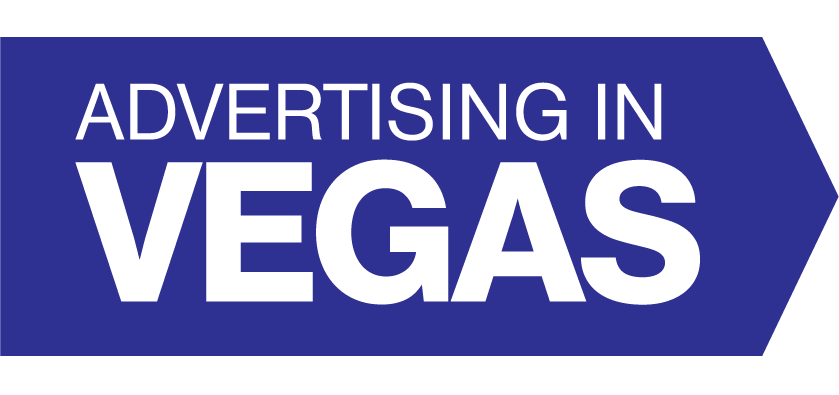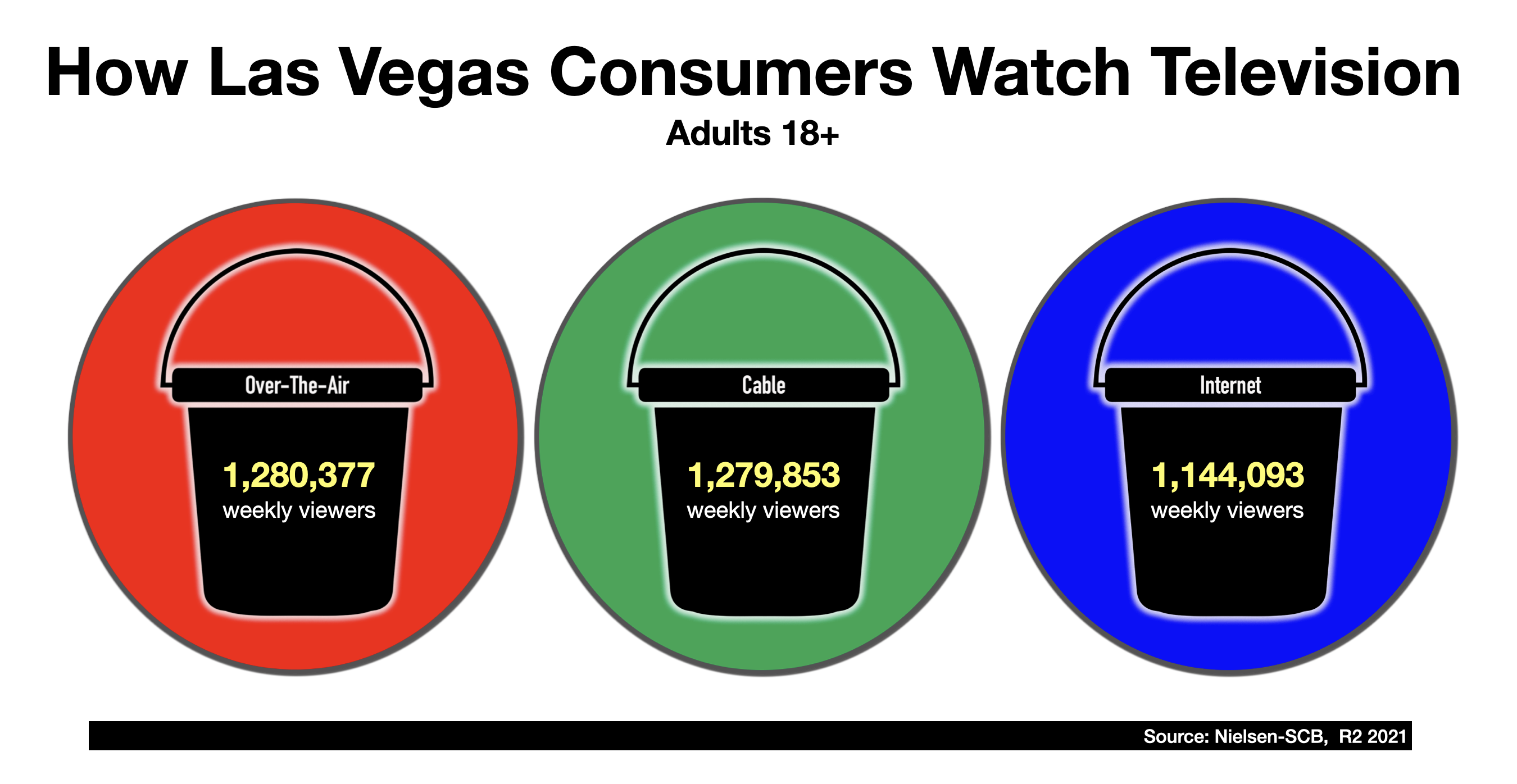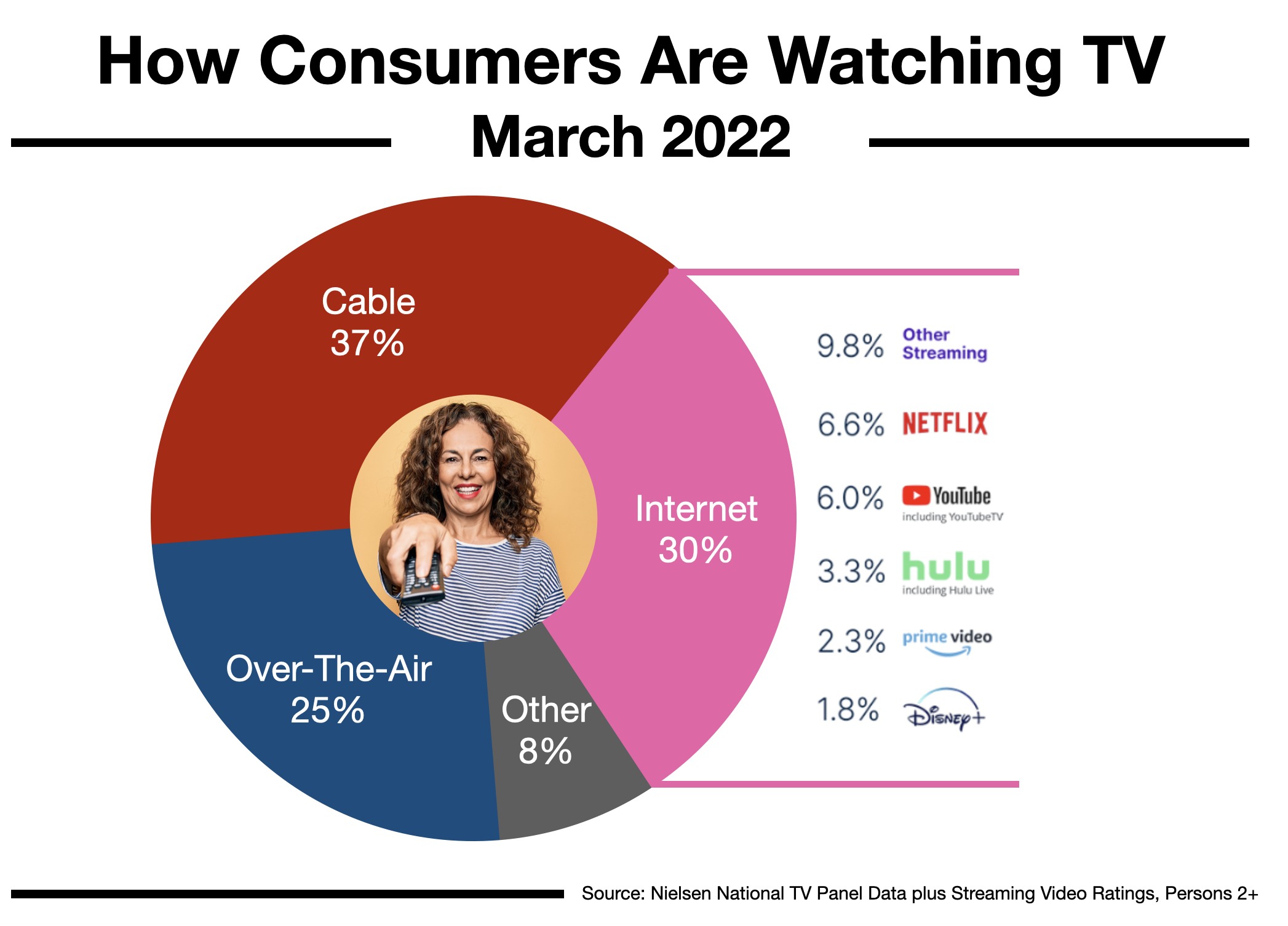 Every week, 1.7 million Las Vegas consumers watch something on TV.
Every week, 1.7 million Las Vegas consumers watch something on TV.
Not too many years ago, when a Las Vegas consumer sat down to watch TV, the program options were limited to what was on KSNV, KVUU, KLAS, KTNV, KLVX, or, maybe, what was on a handful of cable channels. That was then. This is now.
Today, according to Nielsen, each time a TV is turned on in a Las Vegas living room, the viewer has more than 817,000 options not only from broadcast stations and cable systems, but also from streaming video platforms like Netflix, Hulu, Disney+, Peacock, YouTube, Amazon, Tubi, Crackle, and FreeVee.
Of course, Las Vegas consumers don't even need to sit down in front of their big-screen LCD, anymore. Most of the 817,000 available programs can also be viewed on their computers, tablets, gaming devices, and smartphones. But as far as viewers are concerned, though, it's all just television.
 The best way to think about TV watching in Las Vegas is in terms of three buckets:
The best way to think about TV watching in Las Vegas is in terms of three buckets:
- Over-the-air...including all broadcast channels
- Cable...including all premium and non-premium programming
- Internet...including all streaming services. This is also known as OTT or CTV
Here's how many Las Vegas adult viewers fall into each bucket. Remember, viewers are not limited to a single bucket.
Although the internet bucket has the fewest number of viewers, streaming options are now responsible for 30% of all time spent watching TV. This is up 21% from a year ago, according to Nielsen.
Much of the internet-delivered TV programming requires consumers to pay a monthly subscription fee. This includes services like Netflix, HBO Max, Hulu, and Prime. Nielsen finds that well over 80% of viewers who watch streaming video subscribe to multiple providers and are loyal. Nielsen finds that 69% of streamers have not canceled any service over the past year.
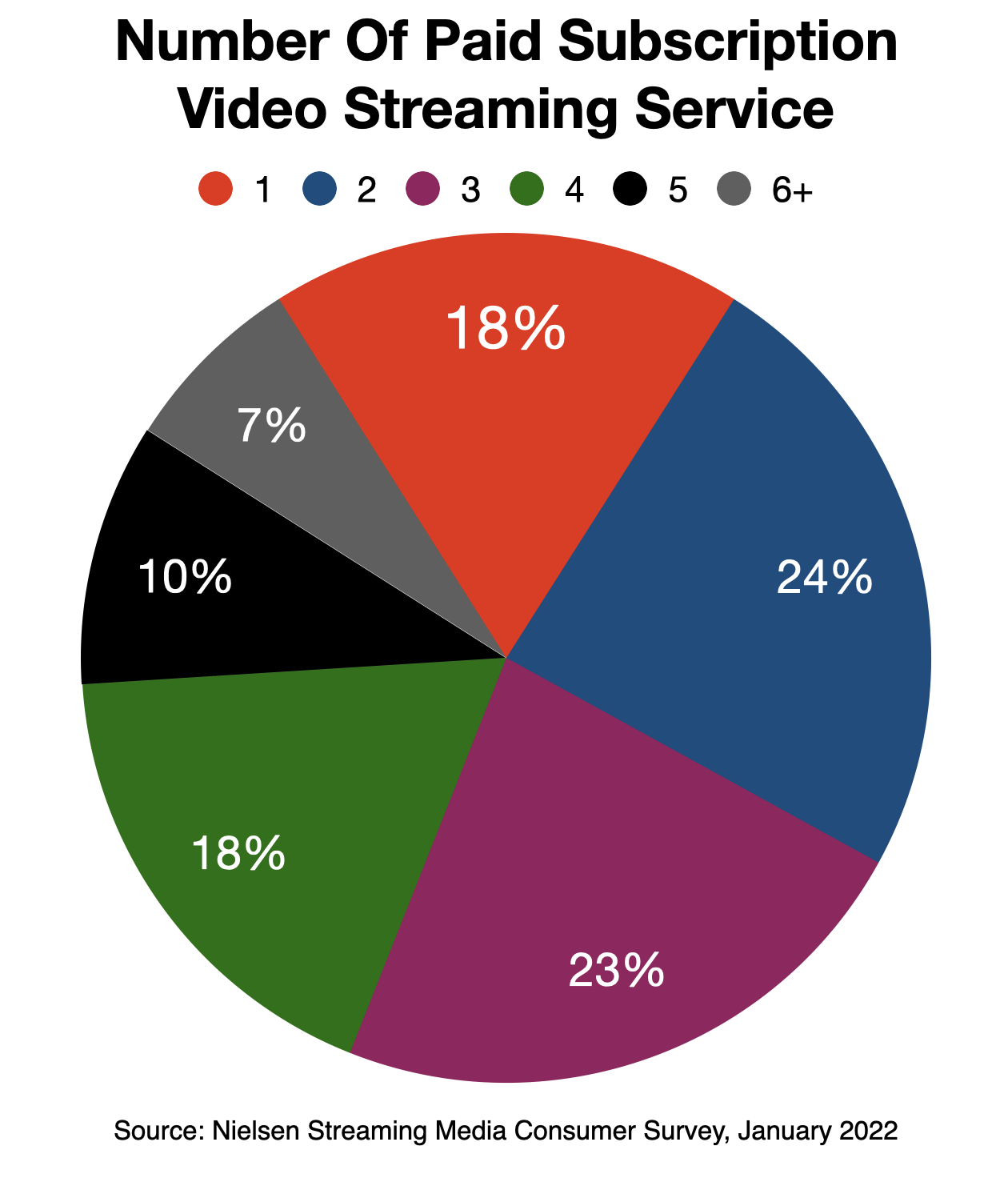 Furthermore, according to Nielsen, 53% who subscribe to streaming media platforms are paying over $20 per month to access this content.
Furthermore, according to Nielsen, 53% who subscribe to streaming media platforms are paying over $20 per month to access this content.
For Las Vegas television advertisers who need to readjust their budgets to reach consumers who are migrating from local broadcast and cable stations to streaming TV, it is essential to understand the two options that viewers have.
SVOD is the abbreviation for Subscription Video On Demand. That is the collective name for streaming networks like Netflix, Hulu, Disney+, and Amazon Prime. For a monthly fee (subscription), these services provide commercial-free access to TV shows, original content, and movies.
AVOD means Advertiser-supported Video On Demand. AVOD provides viewers with movies, TV shows, and original content for free. Unlike SVOD, there is no subscription fee. The trade-off, however, is that AVOD includes commercial breaks, similar to traditional TV viewing.
A few services even offer Las Vegas consumers the option to subscribe without commercials or to receive content for free in exchange for watching advertisements.
Unlike linear TV, local advertisers don't have to pick specific AVOD channels or programming to advertise in. Instead, Las Vegas area business owners can identify the socio-economic qualities of the consumers they would like to reach and target the geographic area where the advertising will be seen. Then the advertisers' commercials would only be shown to those viewers on any advertising-supported streaming channel they might be watching.
More Advertising Advice For Las Vegas Small Business Owners
- Las Vegas Radio Listeners Lead The Return To 'Normal'
- Advertise In Las Vegas: How To Book Guests For A Podcast
- Mother's Day Spending In Las Vegas Will Top $220 Million In 2022
- Advertising ROI: Las Vegas Radio Best Choice For Retailers
- Social Media Advertising In Las Vegas: Should A Business Pay?
- Advertise In Las Vegas: Retail Spending To Top $34 Billion in 2022
